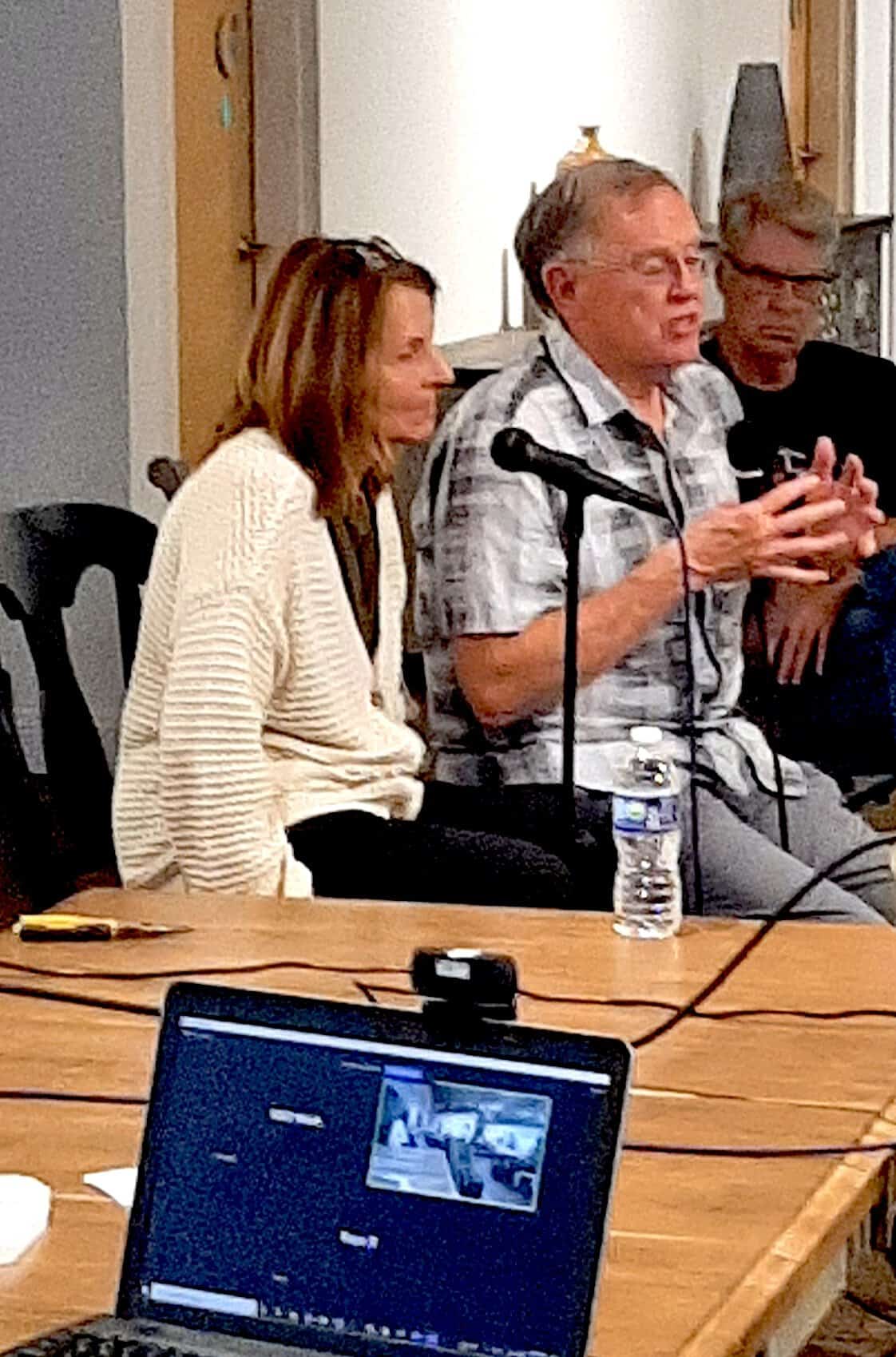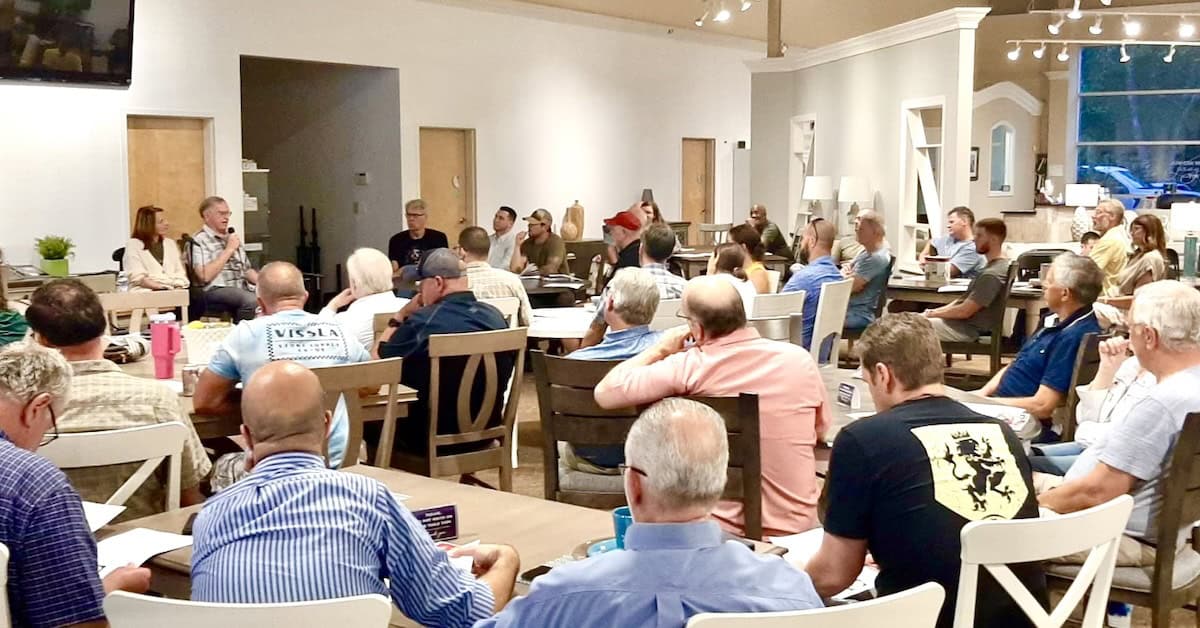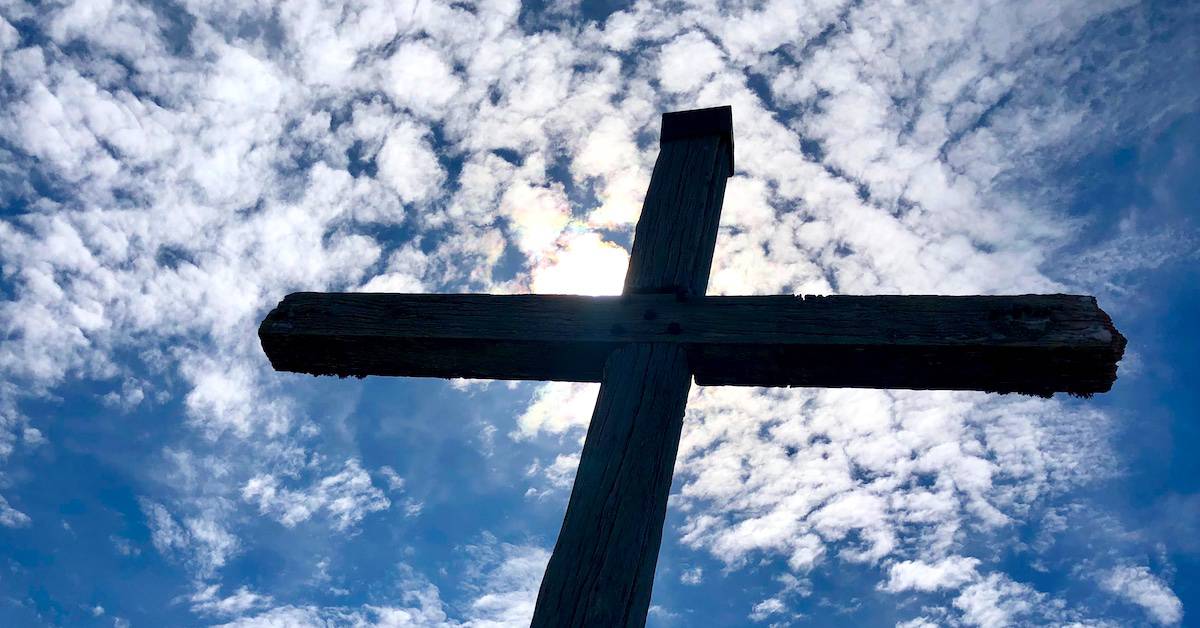Sara’s Story of Hope and Healing
Sara and I are in Charlotte, NC. The first day we got here, Vince Coakley asked me to be on his radio show. He hosts a Transformation Tuesday segment, and wanted us to share our story. Unfortunately, Sara had a conflicting appointment, so I went to the studio alone. We had a great conversation. (It begins at 31:40.)
That evening, Sara and I had been asked to share with The Barn Brothers, a group that normally meets in a barn south of Charlotte. The barn is currently being refurbished, however, so they met in a furniture store. (see picture above). I’ve shared in a lot of different venues, but this was a first for me.
 Normally, it’s a men’s meeting but for this night they opened it up so anyone could come. They wanted us to share our story there, too. Sara and I talked about The Deepest Love in the Darkest Place, the title of a new book we are working on. We hope our story encourages people to embrace God in their pain, not try to run from it or get it fixed first. In the utter darkness of our experience two years ago, Sara and I discovered a deep place in Father’s love that held us through the storm and launched us on a trajectory of healing. Sara was amazing! It was the best I’ve ever heard her share, so clear, so deliberate, so full of hope for others. I admire her so much for the way she tells her story and how much she cares for the people she’s talking to. And people hung on her every word. Tears flowed, stories found their way to the surface of deep trauma and people were grateful for Sara telling this story.
Normally, it’s a men’s meeting but for this night they opened it up so anyone could come. They wanted us to share our story there, too. Sara and I talked about The Deepest Love in the Darkest Place, the title of a new book we are working on. We hope our story encourages people to embrace God in their pain, not try to run from it or get it fixed first. In the utter darkness of our experience two years ago, Sara and I discovered a deep place in Father’s love that held us through the storm and launched us on a trajectory of healing. Sara was amazing! It was the best I’ve ever heard her share, so clear, so deliberate, so full of hope for others. I admire her so much for the way she tells her story and how much she cares for the people she’s talking to. And people hung on her every word. Tears flowed, stories found their way to the surface of deep trauma and people were grateful for Sara telling this story.
If it wasn’t for Sara’s insistence, we wouldn’t be sharing any of this. I would have hidden this all away in my heart, except that she wanted to give hope to others in the same way others had encouraged her. Yes, it was recorded, and you can watch and listen here. This story goes way beyond Sara and me; it is also about God’s redemption in the world and how his heart breaks for us when we feel lost in the darkness. He’s not there to judge our faults, but to hold our hearts and point the way forward.
After telling our story last night, we focused on three encouragements for those who came:
- Risk the darkness. When something dark emerges in your life, whether it be trauma, a false belief being uncovered, or an entangling sin, don’t run from it or push it aside. Invite God into the darkness. You will find him a comforting presence and a guide to move forward.
- When darkness pushes you into fear, anxiety, or despair, ask Jesus how to move you back to a comforted place in his care. You cannot make positive changes outside the window of tolerance when you feel panicky or terrified. Instead, lean into his heart where you can be comforted first and then see what he wants to do from there.
- Be a soothing, safe presence for others who find themselves struggling with darkness. They don’t need our shame or condemnation; they have that in mega-doses. What they need is a caring heart and a listening ear.
Here are some texts sent to us this morning:
- “What an amazing evening last night! Your redemption story is by far the most remarkable one I have ever seen.”
- I believe lives were changed and encouraged. Sooo much courage from you both. What an example of true love, how to love someone unconditionally. My heart was challenged in a good way.”
- “This is the most significant and impactful message of the Team Jacobsen mission, built on the foundation of the messages from prior decades.”
- “Last night was deep, powerful and I think, like Sara’s amazing grace chains breaking, a lot of other chains broke last night too. Let’s keep taking ground…”
I love how Jesus walked us through the trauma and the darkness that surrounded it, rescued our relationship, and now we are able to encourage others when trauma comes knocking in their lives. I have learned more about God and how he works with broken humanity in the last two years than my previous sixty plus.
We finished last night with Isaiah 61, the declaration of the New Covenant—God’s desire to have us understand better how Jesus heals the broken-hearted, sets the oppressed free, opens blind eyes to his truth, and proclaims the year of God’s favor. No wonder that was the first text Jesus preached, according to Luke 4.
To Jesus and his Father, our salvation wasn’t primarily about the after-life, but about being saved today from all the places darkness seeks to own us. That’s the Gospel.
And for those concerned about Zoey, she is now two weeks out from her surgery. We took her to the vet today to have her stitches removed from her two surgeries, and all looks well. She is thrilled to have the cone-head off and to be able to begin to walk a little bit outside. She’s been such a good sport, but we’re excited to get her out of her caged quarters and join the family again. Mandy, the seven-month-old pup, was able to sleep next to her again, which delights her little heart.
So, all is well. We’re having some wonderful personal connections here as well. We have a few more days here in Charlotte before heading north to Roanoke, Charlottesville, Richmond, Baltimore, and Lancaster County, PA. The journey continues…





